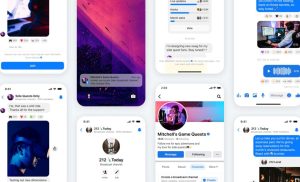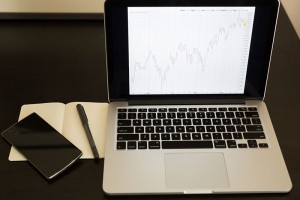Personality tests might be derailing your leaders
There’s a surge in organizations turning to personality tests to assess and develop leadership. Although they can reveal crucial insight, they can just as easily be misused.
BY Matt Paese
“I honestly don’t know how I became this person.”
This anguished remark came as a newly promoted pharmaceutical executive read through an assessment report detailing scathing feedback from his team and colleagues. Long known as an engaging leader who cultivated high-performing teams, it took less than a year in a new role for him to be described as combative, self-absorbed, and overly competitive.
He fell into a common pitfall, not unlike the 35% of internally promoted executives who fail. Stepping into a complex, high-risk role, he did what most do and followed his natural instincts. But without sufficient self-awareness, he over-indexed on his strongest tendencies—passion and drive. In a flash, traits that once served as assets suddenly threatened to derail his career.
Stories like these have fueled a surge in organizations turning to personality tests to assess and develop leadership, swelling to 80% of the Fortune 500. While these measures can reveal crucial insight into leadership characteristics, they can just as easily be misused.
Personality tests: Advantages and limitations
Using personality as a growth catalyst requires clarity about what these assessments can tell us about leaders—and what they can’t.
When grounded in good science, personality tests and tools provide unique insight into an individual’s hardwired attributes like sociability, curiosity, and dependability. They can also reveal potential derailers like insensitivity, lack of impulse control, or arrogance.
Having an accurate read of these traits can help identify leadership skills that may be easier or more challenging to develop. This matters because personality traits—whether desirable or not—become more visible and consequential at higher levels of leadership. HR leaders can use personality insights to mitigate risks while sharpening growth and development efforts.
But there’s a danger. Personality data can also tempt HR to box people into fixed categories, causing management and leaders themselves to jump to narrow conclusions. Seeing indicators of potential derailers like impulsivity, rigidity, or indecisiveness may trigger a snap assumption that the individual is poorly suited for leadership. Simply labeling certain traits as “derailers” can be a derailer— fixating an employee on their rigidity or indecisiveness can crush self-confidence and misdirect development, undermining leadership potential.
It’s not personality that needs to change—it’s behavior
Ultimately, leaders can’t change their personalities—not much, and not quickly— and it’s counterproductive to make them, or management, think they should try. Unfortunately, it’s easy to get this wrong and operate on the false assumption that personality is a certain determinant of future behavior. It’s not that simple. So, instead of asking people to change who they are, HR can guide individuals toward behaviors that harness their natural tendencies.
The combative, self-absorbed leader described earlier had strong tendencies toward emotional volatility and fear of failure, but also deep altruism and competitive drive. Rather than frame these tendencies as flaws, his development began with embracing his unique psychology, acknowledging the damage his behaviors had been causing, and then learning how to channel his energy more productively. Instead of being made to feel as though there was something wrong with him, he received coaching to learn how to leverage his natural traits in the context of his new role, without overusing them. He could still be confident, and even a bit argumentative, but now in ways that coupled respect and openness with his more assertive impulses.

Assessment is a start, not a conclusion
Relying on personality tests as the sole or dominant measures of leadership potential can inadvertently discourage development and risks overlooking exceptional leaders or worse, encourage them to self-select out of learning opportunities.
To help individuals learn and adapt their natural traits to achieve success, HR should start by framing the personality test as a launch point and make it clear that assessment is being used to spot areas for development—not flaws.
Diverting attention away from assessment scores toward developmental achievement introduces a critical counterbalance many organizations fail to achieve. And as simple as that notion may seem, it is common for management teams to exercise deep engagement in understanding assessment results, while devoting little or no attention to the development that the assessment is intended to spark.
Make no mistake: Personality tests play an indispensable role in cultivating a strong leadership bench. And because personality is extremely difficult to evaluate accurately without scientifically developed assessments, there is deep curiosity and often considerable surprise when personality data is observed. This gives personality tests a dangerously seductive quality. People want to know their own personalities, and most are fascinated to learn about others’ profiles. And this risks overemphasis on its role in developing leadership strength.
With the right foresight and balance, senior leaders can help people like the pharmaceutical executive effectively prepare for bigger leadership roles before they stumble into their own derailers.
But the purpose of personality tests is not simply to avert failure—it’s to help leaders embrace and leverage their unique tendencies as advantages. This elevates the focus on activating hidden talent, not simply evaluating it. With HR, management and individual leaders can leverage personality tests to strengthen the dynamic realization of leadership potential that fuels growth and success.
ABOUT THE AUTHOR
(7)
Report Post







